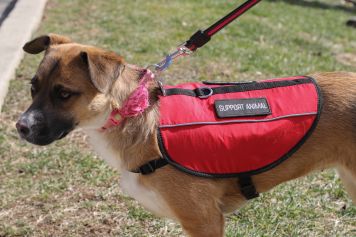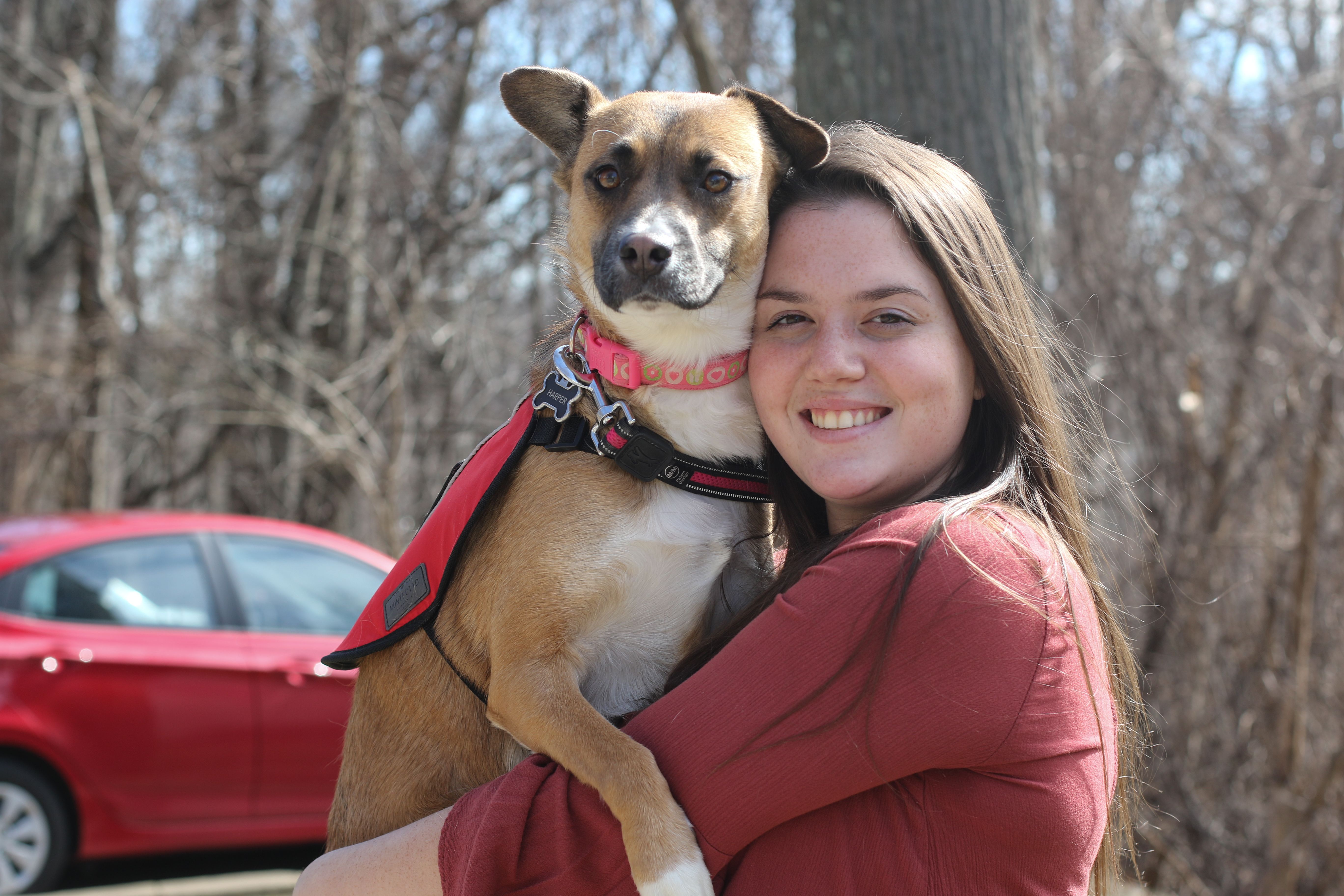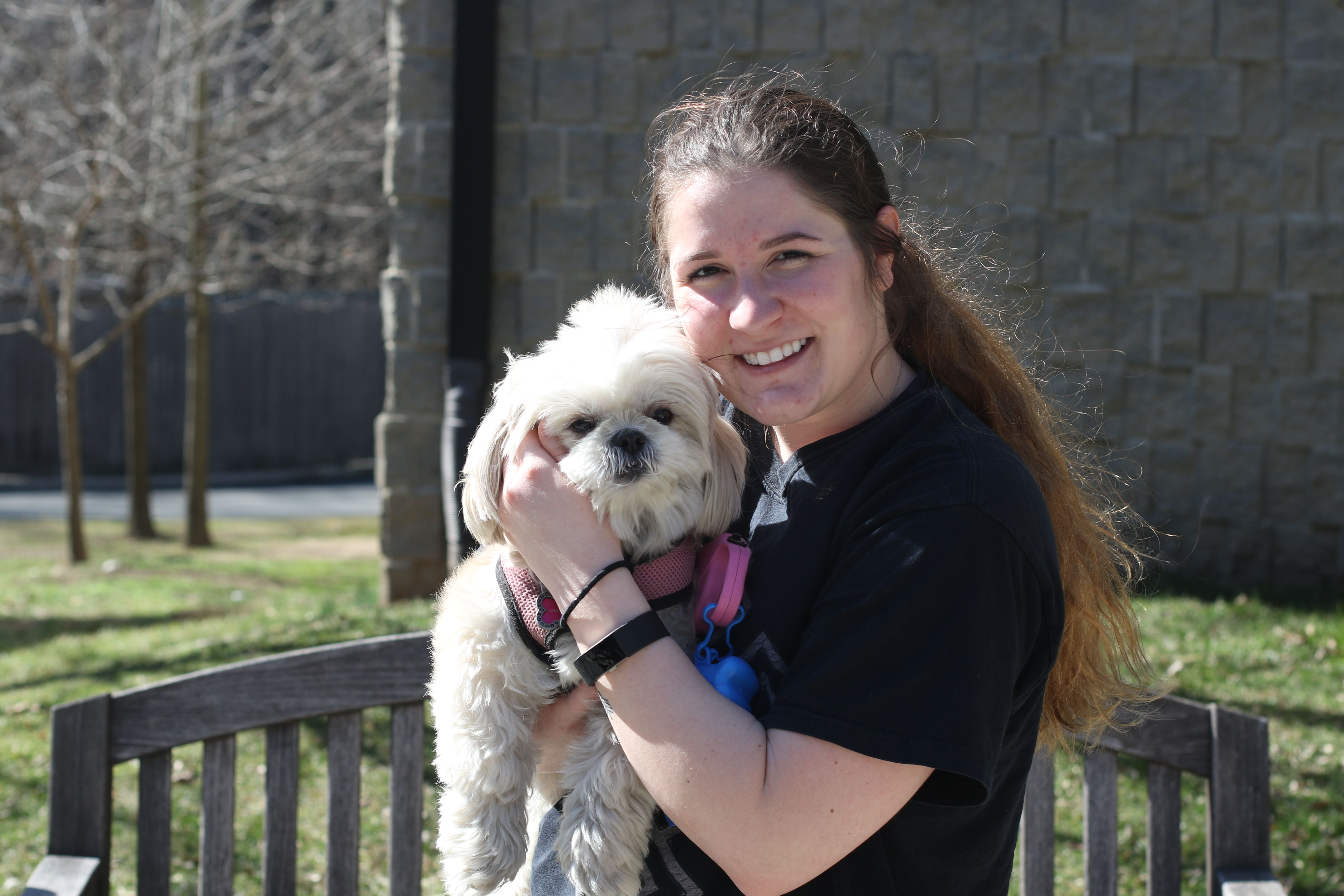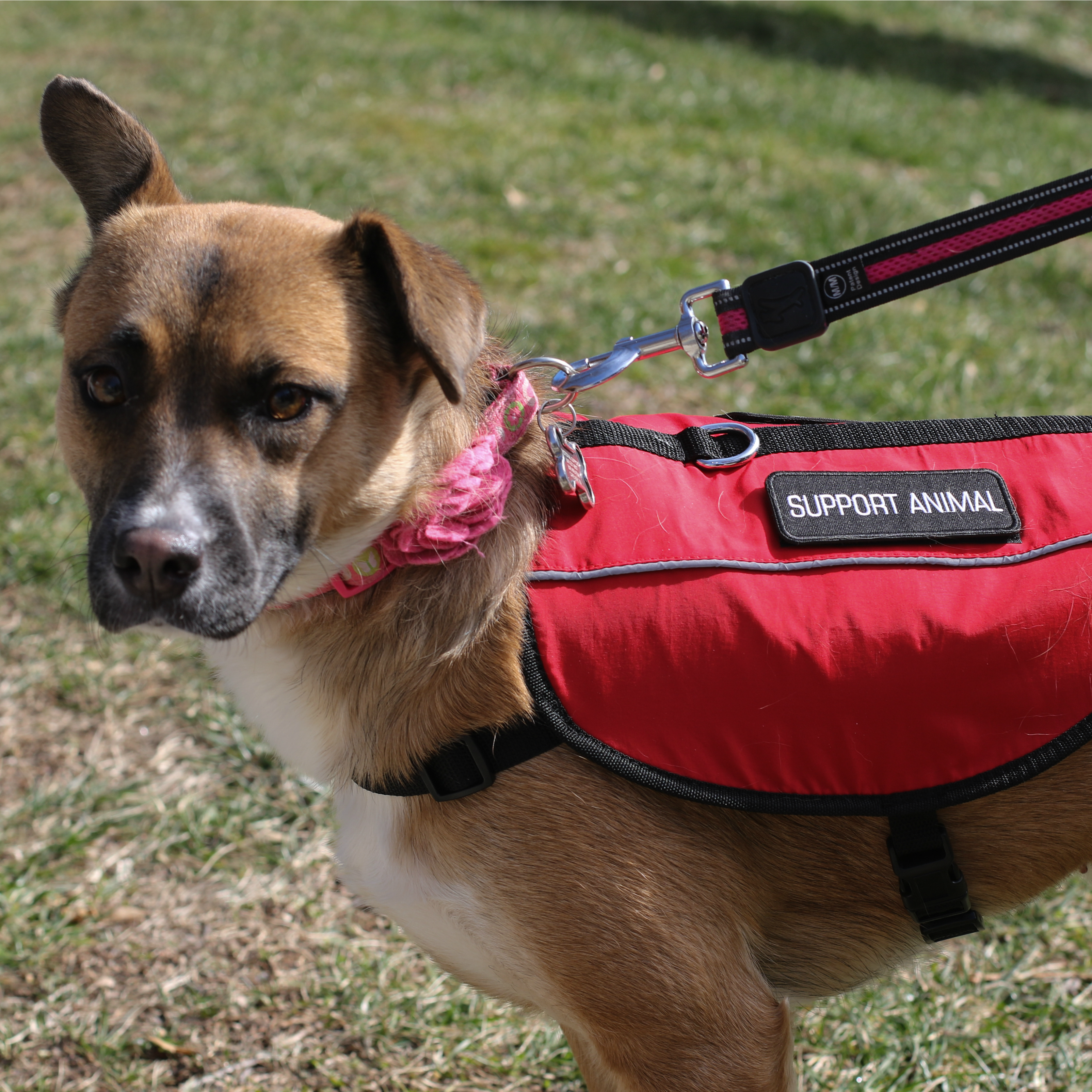 Imagine moving into your dorm on that hot day in August only to find out that your new neighbor is a dog. As excited as you might be that animal is most likely there for a purpose and not just a cute face to have lurking around the dorms.
Imagine moving into your dorm on that hot day in August only to find out that your new neighbor is a dog. As excited as you might be that animal is most likely there for a purpose and not just a cute face to have lurking around the dorms.
This situation is happening more and more often on campuses around the country as emotional support animals because more common among college students.
According to the National Service Animal Registry, “An Emotional Support Animal (ESA) is an animal that, by its very presence, mitigates the emotional or psychological symptoms associated with a handler’s condition or disorder.”
There are many reasons why students and people, in general, require an emotional support animal to function properly in their everyday lives. Anxiety and depression are among the top reasons why a student might request to have an emotional support animal in their dorm.
The Fair Housing Amendments Act of 1988 states that in Section 504 of the Rehabilitation Act of 1973, and Title II of the Americans with Disabilities Act protect the right of people with disabilities to keep emotional support animals, even when a landlord’s policy explicitly prohibits pets.
The Disability Resource Center at Cabrini does make accommodations for students who have registered disabilities who require an emotional support animal. They allow for an animal of specific size and quality to live in the dorms with the consent of the rest of the building.
At Cabrini, there are many furry faces walking around campus.
Meet Lexi & Harper

Lexi Douglass is a sophomore pre-k-four, elementary and k-eight special education major and currently is a resident assistant in Sullivan House. Harper is Lexi’s emotional support dog and helps her keep a routine.
“I have Harper on campus because I have multiple disabilities under the ADA. I have severe ADHD, depression and anxiety,” Douglass said. “With the mix of ADHD, depression and anxiety Harper helps me in my daily life by keeping me on a routine which is the main reason I have her. Someone who has a mix of these three conditions your brain is going all over the place and it’s very hard to get control of your life and function. So having her I have set times of walking her, doing homework, playing with her, things like that.”
Harper also helps Lexi deal with her stress. Whenever she is having a bad day or is overwhelmed by the stress of college, Harper always seems to recognize it and nudges her to play with her or take her for a walk to ease Lexi’s nerves.
Having a dog in the dorms can have some negative aspects.
“If I am in class and someone asks me to go to the mall, I have to take like an hour because I don’t want to leave her in a cage for that long,” Douglass said. “So there is definitely negatives but I think the positives outweigh the negatives.”
Lexi is very open about her mental health and the reasonings behind why she has Harper on campus.
“Don’t be ashamed of your mental health. I go to a psychologist, I have my dog, I reach out to all my friends I’m very open with my mental health because if you shut it out it makes it a lot worse,” Douglass said. “But if you really open up and face the fact that you have it its a lot easier to deal with and talk to people. You’d be surprised with how many people deal with things.”
Meet Breana & Chloe

Breana Capone is a junior biology major and is currently living in West Residence Hall. Chloe is Breana’s emotional support dog who helps keep her stress levels down.
“I got her as an emotional support animal for anxiety when it comes to school and the stress of all of that,” Capone said. “So she is here to comfort me.”
For Breana, the stress of the college workload can be heavy. Chloe is always a friendly face to end her days with and lifts her spirits.
“When I get home  from school and it is a really really stressful day she is always just there and I can snuggle with her and she comforts me,” Capone said. “She gets me out when I am feeling really stressed. And that is good for me to go out and walk her when I am feeling like that.”
from school and it is a really really stressful day she is always just there and I can snuggle with her and she comforts me,” Capone said. “She gets me out when I am feeling really stressed. And that is good for me to go out and walk her when I am feeling like that.”
Having an emotional support animal on campus is not something that is offered a lot at other schools. Breana is very thankful for Cabrini for making the process of bringing Chloe to campus very easy.
“I hope Cabrini allows more students to have emotional support animals because I think it would be cool to have more animals on campus because I know not a lot of other schools allow that,” Capone said.
An emotional support animal can be the difference between manageable and unmanageable mental illness within college students.
“Having her here really does help. She helps keep my stress levels down,” Capone said. “I think it is really cool that the college lets me have an emotional support animal. I want more students to be aware of it and have them as well. If you have anxiety or depression or any mental illnesses and feel like it affects your school work in some type of way you can have pets on campus to help with that.”



